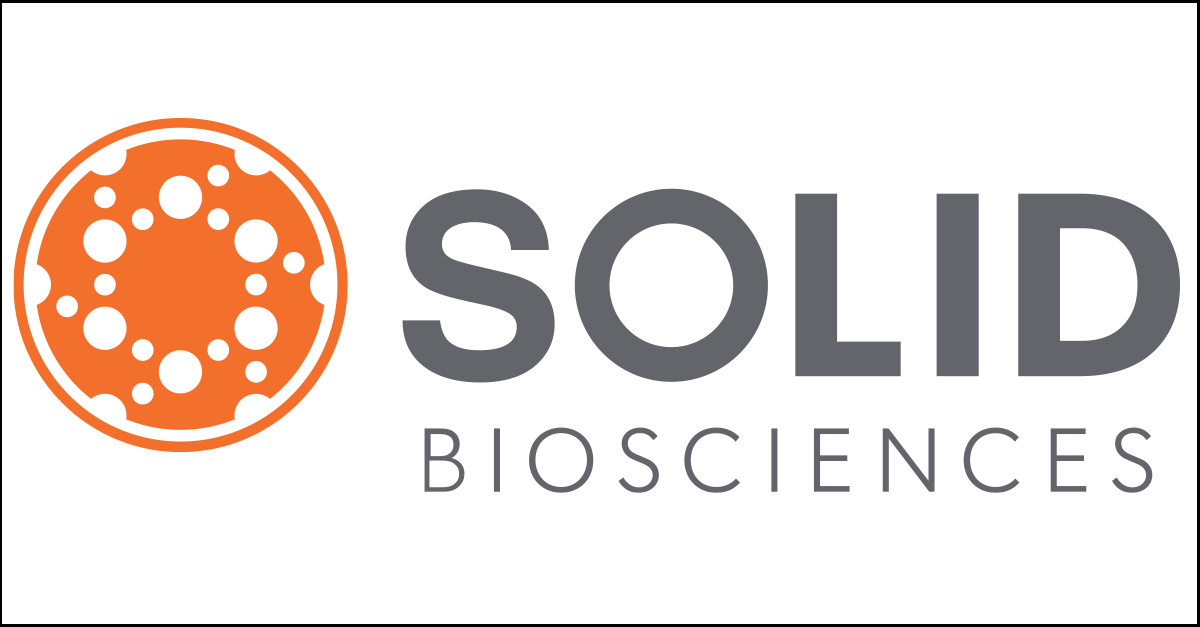
Solid Biosciences has shared an update from IGNITE DMD, an ongoing Phase I/II clinical trial evaluating its gene therapy candidate SGT-001 in participants with Duchenne.
In the announcement, Solid reports positive two-year efficacy and safety data from the first three participants treated in the high dose cohort of the trial, and provided 90-day biopsy results for the most recent three participants treated in the high dose cohort.
Solid shares that the company will continue to follow dosed participants and collect data to support the potential benefit of SGT-001, with plans to conclude IGNITE DMD dosing this year and begin discussions around next steps with the FDA.
Read the community letter:
Dear Duchenne Community,
This morning we issued a press release providing an update on Solid’s business as well as data from our ongoing Phase I/II IGNITE DMD clinical trial of our lead gene therapy candidate, SGT-001. This included positive two-year safety and efficacy results from the first three patients treated in the high dose (2E14 vg/kg) cohort as well as muscle biopsy results from the three most recently dosed patients that were consistent with previously dosed patients in the high dose cohort. We are excited to share details about our recent progress to further our mission of advancing meaningful treatments for patients with Duchenne.
IGNITE DMD Phase I/II Clinical Trial Update
Today, we reported two-year interim efficacy and safety data from the first three patients treated with SGT-001 in the high dose (2E14 vg/kg) cohort as part of IGNITE DMD. Data suggest improved motor function as well as improvements in pulmonary function and patient-reported outcome measures at the two-year time point, compared to the declines that would be expected in each of these assessments from Duchenne natural history studies. These results are consistent with those reported by Solid at the 12-month and 18-month time points for the same IGNITE DMD patients. In addition, no new treatment-associated safety findings in the long-term follow-up for these patients were observed.
We also announced an update of day 90 skeletal muscle biopsy data, which includes analysis of needle biopsies collected from the three most recently dosed patients in the high dose cohort. The results show that microdystrophin expression levels for these newest patients fall within the same range as levels observed for the first three patients dosed in the high dose cohort.
Solid’s Head of Clinical Development, Roxana Donisa Dreghici, will present this data in an oral session on Wednesday, March 16 at the 2022 Muscular Dystrophy Association (MDA) Clinical and Scientific Conference, taking place March 13-16 in Nashville, Tenn.
These data enhance our understanding of the role that SGT-001 may play in improving outcomes for patients with Duchenne. We continue to advance the IGNITE DMD clinical trial and will continue to follow dosed patients and collect data to support the potential benefit of SGT-001 and expect to dose additional patients this year.
Upcoming Community Presentations
- CureDuchenne FUTURES National Conference: May 27-29, 2022
- Parent Project Muscular Dystrophy Annual Conference: June 23-26, 2022
We are encouraged by the long-term motor function, pulmonary function, and patient reported outcome measures data collected to date and are excited by the promise of SGT-001 as well as our expanding pipeline. The team at Solid Biosciences remains fully committed to the Duchenne community and to our purpose of improving the lives of patients living with Duchenne.
#TogetherWeAreSolid
Sincerely,
Your Solid Biosciences Team
Read the Press Release:
Solid Biosciences Reports Fourth Quarter and Full-Year 2021 Financial Results and 2-Year Efficacy and Safety Data from the Ongoing Phase I/II IGNITE DMD Clinical Trial of SGT-001
– 2-year data from first three patients in the high dose (2E14 vg/kg) cohort suggest sustained or improved motor function, pulmonary function and clinically validated patient-reported outcomes compared with expected declines reported by natural history data –
– 90-day biopsy data from most recently dosed patients show microdystrophin expression that is consistent with earlier high dose (2E14vg/kg) cohort patients –
– Company to present updated IGNITE DMD data at the 2022 Muscular Dystrophy Association Clinical & Scientific Conference –
– Company advances SGT-001 clinical and regulatory strategies toward End of Phase II FDA discussions; Pipeline expansion activities continue for next generation Duchenne program, SGT-003; Company ends 2021 with $207.8 million in cash and investments –
CAMBRIDGE, Mass., March 14, 2022 (GLOBE NEWSWIRE) — Solid Biosciences Inc. (Nasdaq: SLDB), a life sciences company focused on advancing meaningful therapies for Duchenne muscular dystrophy (Duchenne), today provided an update from the ongoing IGNITE DMD Phase I/II clinical trial, as well as a business and financial update. The company reported positive two-year efficacy and safety data from the first three patients treated in the high dose (2E14 vg/kg) cohort of the ongoing Phase I/II IGNITE DMD clinical trial. Additionally, the company reported 90-day biopsy results for Patients 7-9, the most recent three patients treated in the high dose cohort.
Roxana Donisa Dreghici, MD, Senior Vice President, Head of Clinical Development at Solid will present “IGNITE DMD Phase I/II Study of SGT-001 Microdystrophin Gene Therapy for DMD: 2-Year Outcomes Update” in an oral session at the 2022 Muscular Dystrophy Association (MDA) Clinical & Scientific Conference on Wednesday, March 16. The conference is taking place March 13-16 in-person in Nashville and virtually.
“We are encouraged by the motor function, pulmonary function and patient reported outcome data which show that patients continue to experience durable benefit across all reported measures two years after SGT-001 dosing,” said Dr. Dreghici. “This is important as the evidence suggests that these patients treated with SGT-001 show potentially sustained or improved performance at a time when expected natural history would suggest a decline. We are especially pleased that the data suggests sustained benefit of pulmonary function at the two year timepoint, which may lead to delayed ventilation and improved quality of life, as well as potentially an increased life expectancy.”



 by: Parent Project Muscular Dystrophy
by: Parent Project Muscular Dystrophy

